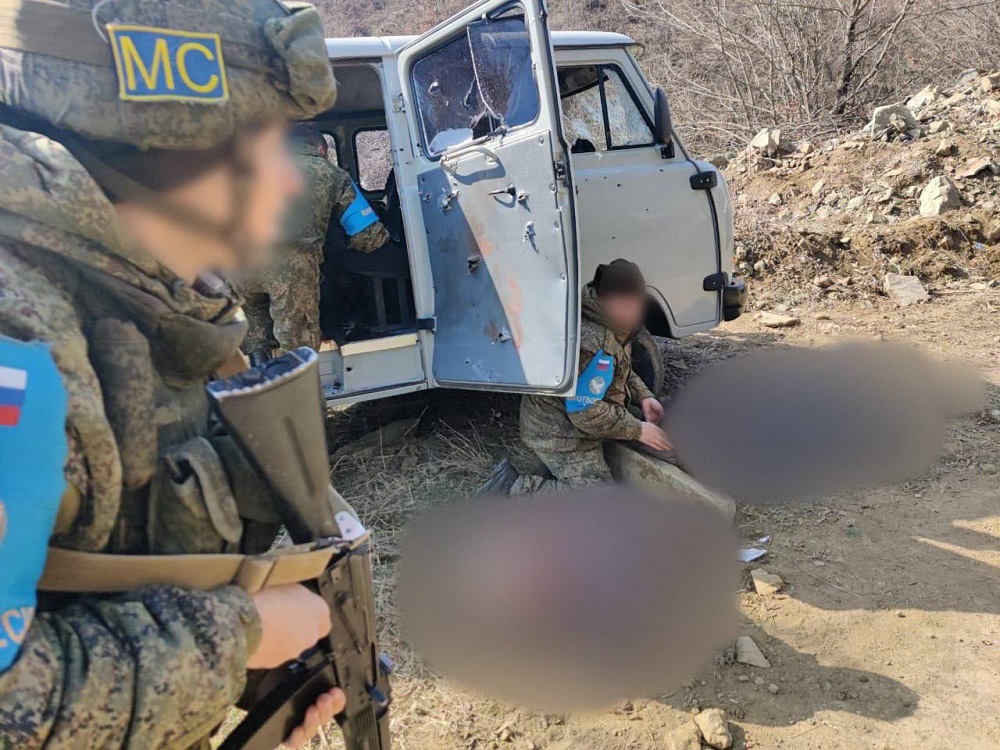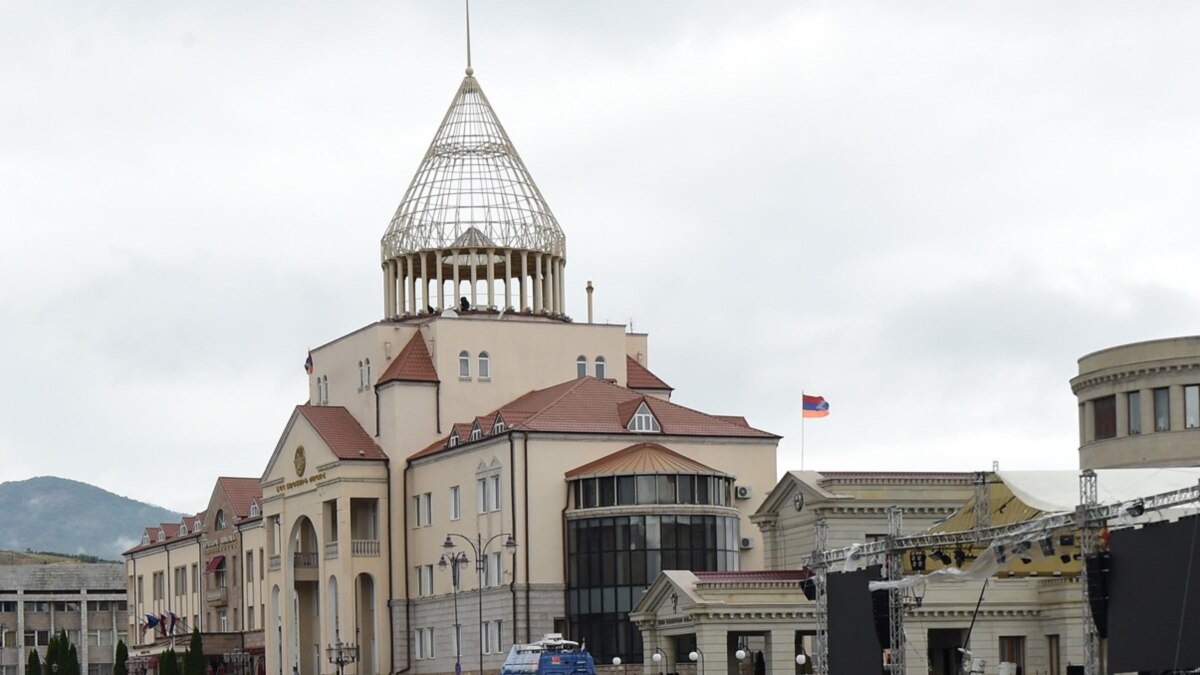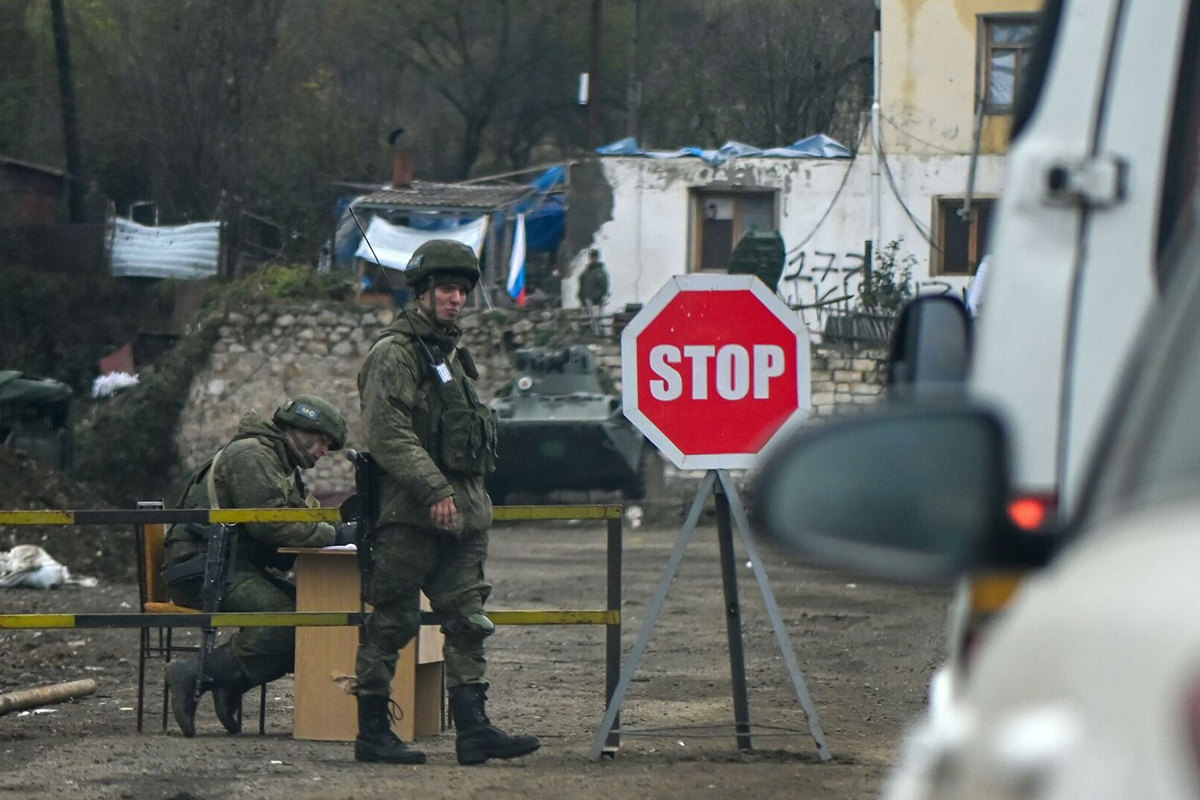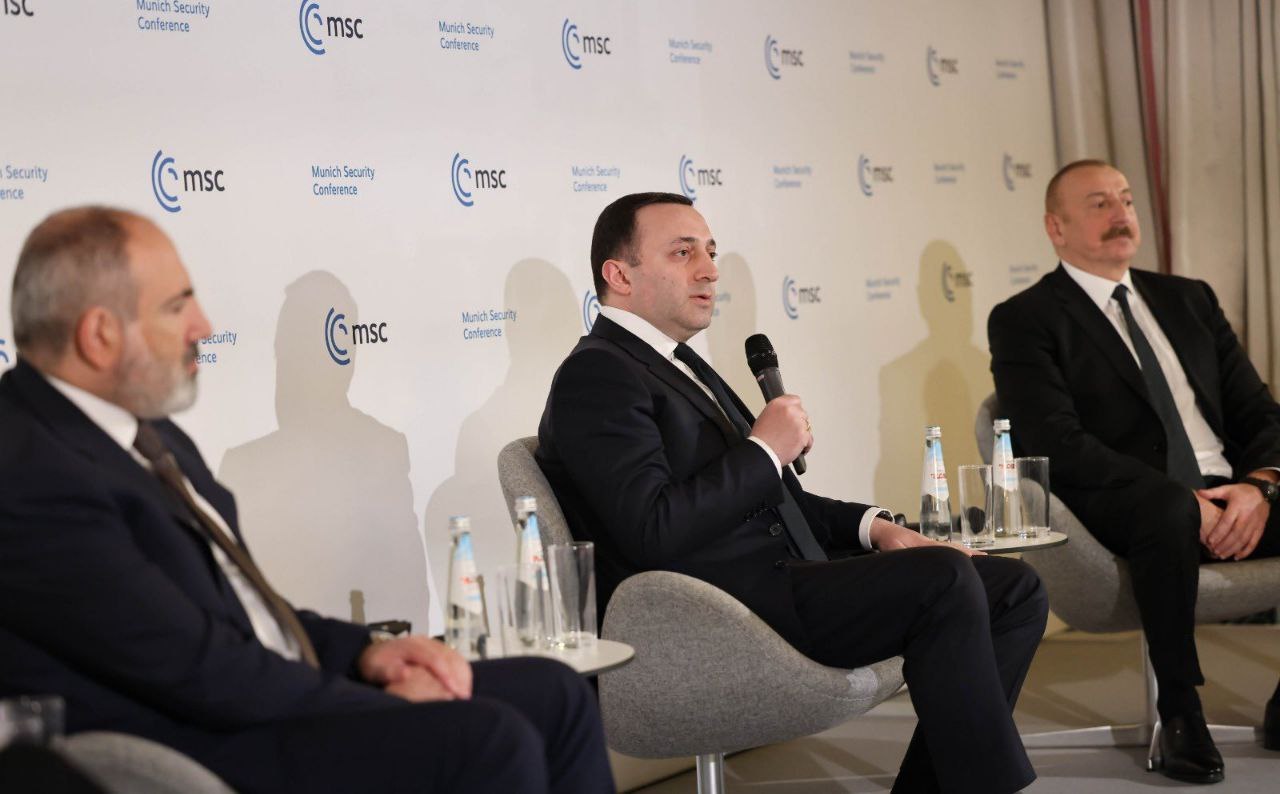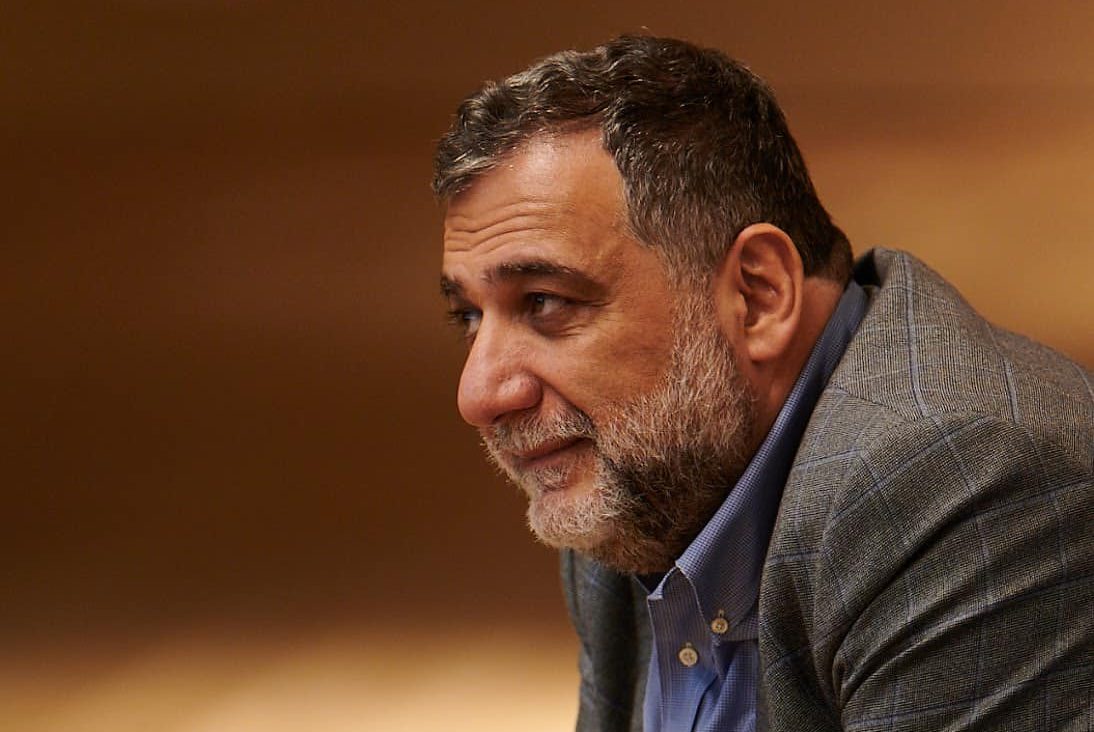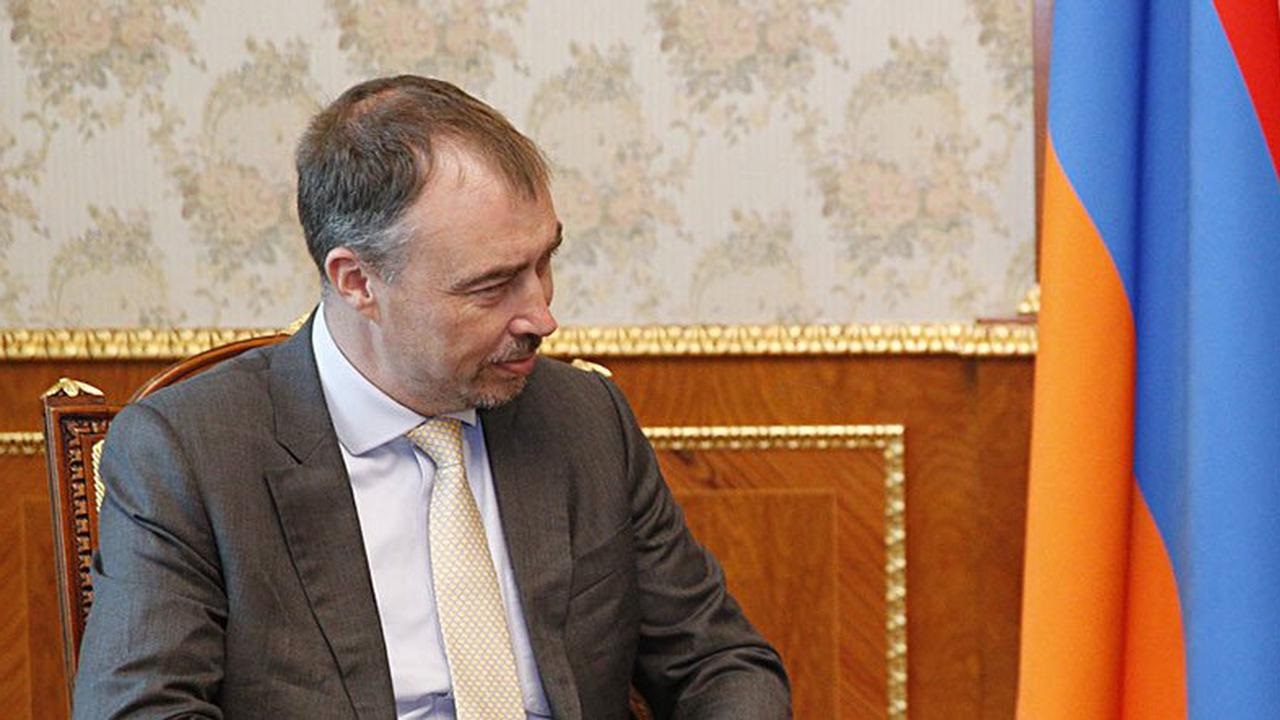"Baku is trying to speak in ultimatums" - Secretary of the Council of Armenia
Interview with Armen Grigoryan
In an interview with the Azatutyun (Liberty) radio station, Secretary of the Security Council Armen Grigoryan said that “the issue of integrating Artsakh into Azerbaijan was not discussed by Armenia,” and Yerevan’s position is to discuss the rights and security of the Armenians of Nagorno-Karabakh within the framework of an international mechanism.
“We need to stay within the framework of the agreements”
Official Yerevan has repeatedly stated “the need for a Baku-Stepanakert dialogue in an international format.” But Azerbaijan, especially after the last two humanitarian meetings with representatives of the unrecognized republic, insists that the agenda include “the issue of integration of Karabakh Armenians.” Armen Grigoryan said that the latter reject such an agenda.
As for the position of Yerevan, according to Grigoryan, it is that “rights and security within the framework of the international mechanism should be discussed.” He added that “we are talking about international obligations that must be fulfilled.”
In answer to a journalist’s remark that, to Azerbaijan, that would mean integration, Grigoryan replied that if the final result were predetermined, the negotiations would be difficult, since “Nagorno-Karabakh can also announce the final results of its expectations.”
“In order for the negotiations to take place, it is necessary to create an opportunity for discussions. And we need to stay within the framework of the agreements, because we agreed to discuss security and rights,” Grigoryan stated.
“Russian mediation is also an international mechanism, the problem is not the format”
Commenting on meetings between representatives of Azerbaijan and the unrecognized NKR, organized through the mediation of the command of the RMK, Grigoryan said that Russian mediation is also an international mechanism, but emphasized that the nature of the issues under discussion should be taken into account:
“When we talk about holding discussions within the framework of the international mechanism, we do not mean discussing purely humanitarian issues, unblocking the Lachin corridor or the issue of electricity supply. We mean discussion of more essential questions. This is security, these are rights.
It was reported from NK that at two meetings with Azerbaijan (February 24 and March 1) only issues of a “humanitarian nature, not related to the political status of Artsakh” were discussed.
According to Grigoryan, the problem is not in the format, but in the fact that the rights and security of people would be really ensured. He considers effective steps on the part of the international community to be important in the formation of the mechanism.
Grigoryan said that there is an agreement to hold talks on this issue, but not on a specific format or mechanism:
“One of the mechanisms could be the creation of a demilitarized zone around the Nagorno-Karabakh line of contact. Naturally, this will create security guarantees. Various possibilities can be discussed, including the presence of the international community in Nagorno-Karabakh.”
He recalled that the discussion on the formation of an international mechanism also took place during the meeting, in which he himself participated with Assistant to the President of Azerbaijan Hajiyev in Washington in September 2022.
“Azerbaijan demonstrates behavior that goes beyond the agreements. He tries to speak with ultimatums. Pressure continues on Nagorno-Karabakh with various tools, I mean the situation when the Lachin corridor continues to be blocked, sabotage activities [he refers to the March 5 incident], etc.,” he said.
“Azerbaijan plans ethnic cleansing in Karabakh”
Grigoryan believes that Baku clearly intends to expel the Armenians, as evidenced by both the Lachin corridor blockade, and the events that preceded and followed the blockade. According to Grigoryan, Azerbaijan continues its “aggressive policy, is not ready to sit down at the negotiating table and conduct real discussions.”
He recalled the March 5 incident, which occurred four days after the meeting of Azerbaijani representatives with Armenians living in Karabakh. According to Armenian sources, “an Azerbaijani sabotage group fired on the duty car of the personnel of the NKR Passport and Visa Department”, killing three policemen.
“One of the options for solving this problem is to ensure the presence of the international community in the Lachin corridor and NK,” Grigoryan said.
“There is no need for additional negotiations on the Lachin corridor”
Grigoryan also mentioned the Azerbaijani President’s statement on the establishment of an Azerbaijani checkpoint in the Lachin corridor. Ilham Aliyev said in February during the Munich Security Conference that there is an understanding of this on the part of international partners. However, Armenia insists that there are final agreements regarding the Lachin corridor, recorded in a statement dated November 9, 2020, therefore there is no need for additional negotiations.
“The architecture of [the statement of] November 9 is important for ensuring the security of Nagorno-Karabakh, important circumstances are taken into account. These provisions are a guarantee of security, the change of which again creates the risk of ethnic cleansing in NK,” Grigoryan stated.
Grigoryan maintains that Azerbaijan agrees to one thing, then waits, and flops on its position.
“There is no point in negotiating something new with Azerbaijan if Baku’s position is that it is necessary to negotiate endlessly, change agreements endlessly.”
About meeting in Brussels or Moscow
Grigoryan said that the Armenian side is ready to participate in the meetings both in Brussels and in Moscow, and that Russia has submitted proposals now under discussion.
At the moment, there is no agreement on a meeting in Brussels. Grigoryan emphasizes the importance of implementing the agreements already reached during previous meetings, and the same for future meetings.
Interview with Armen Grigoryan
If there is progress on the Nagorno-Karabakh issue
According to Grigoryan, the conclusion of a peace treaty between Armenia and Azerbaijan and the resolution of the Nagorno-Karabakh issue should be parallel processes:
“The peace agreement can be finalized, brought to a final form, if we have progress on the Nagorno-Karabakh problem, if there are guarantees of security and rights, Armenia will be sure that there will be no ethnic cleansing in Nagorno-Karabakh.”
He says that such an agreement with international partners exists.
What are the points of disagreement?
Grigoryan told reporters that the parties have disagreements on four or five points of the peace agreement, without disclosing which, and noting only that most of the disagreements relate to the Nagorno-Karabakh problem, and there is no agreement on the “institution of guarantors” of the peace treaty.
Grigoryansaid that, in Baku’s opinion, the peace treaty should become a “constitution” for Armenia, superior to all other international obligations of the country.
“This cannot be, because Armenia is a responsible international partner. We cannot sign a document that, one might say, nullifies our other obligations to some extent,” he stated.
“A thousand and one excuses not to help us”
According to Grigoryan, the only reason the civilian mission of the European Union arrived in Armenia to monitor the border with Azerbaijan is the “experience” accumulated in the country in recent years. He recalls that Armenia applied to the Russian military bloc CSTO, of which it is a member, with a request for territorial protection, but received “zero support”.
He says that in response, “the narratives of Azerbaijan were even used, which meant not only the refusal to support an ally, but also support of the enemy.” That is, Armenia did not receive the guarantees on which it had agreements, therefore “it was looking for additional guarantees.” He stressed that the EU did not have any contractual obligations towards Armenia, but “showed goodwill and extended a helping hand”:
“Other countries [referring to Russia and the CSTO countries — Belarus, Kazakhstan, Kyrgyzstan and Tajikistan] had treaty obligations, but they found a thousand and one excuses for not helping us.”
Grigoryan believes this is a matter of “political will” — if there were a desire to help they would use all means and would not give excuses for inaction.
Follow us – Twitter | Facebook | Instagram
Interview with Armen Grigoryan










